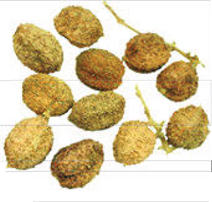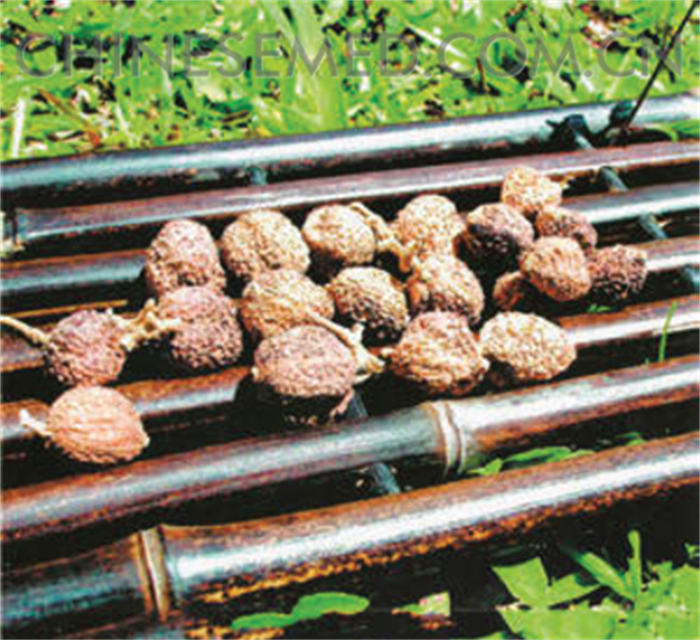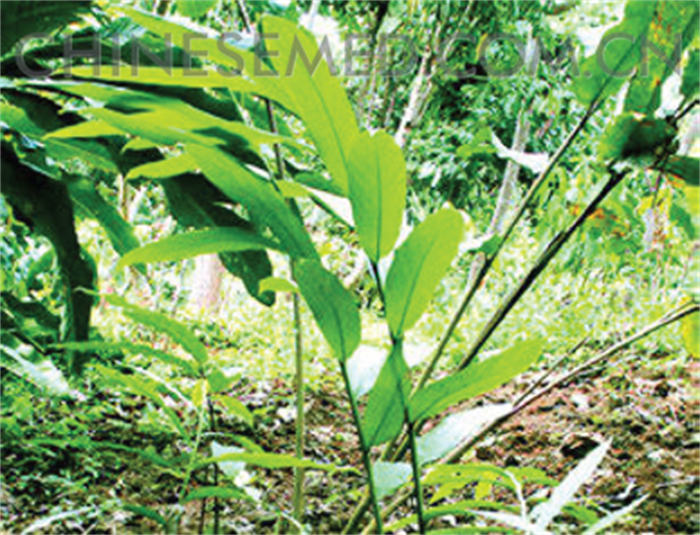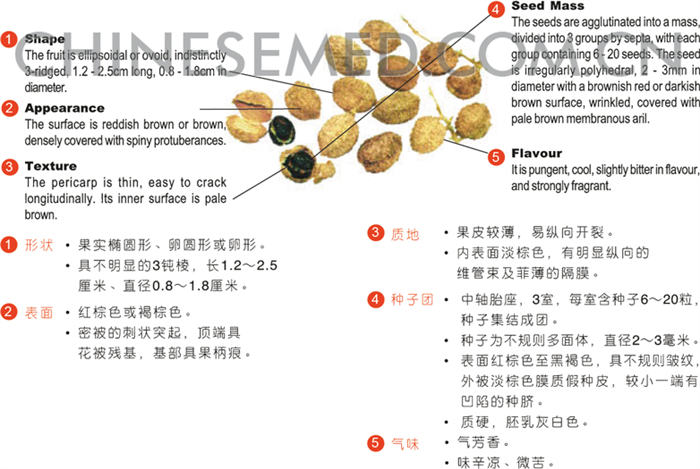

Source Villous Amomum Fruit is the dried fruit of Amomum villosum Lour. or A. longiligutare T.L Wu (Fam. Zingiberaceae).
Producing Areas Yangchun Sharen is mainly produced in Guangdong, Guangxi. Hainan Sharen is mainly produced in Guangdong, Hainan and Zhanjiang, etc. Suosha (Luke Sharen) is mainly produced in Vietnam, Thailand and Indonesia, etc.
Properties Spicy, Warm
Channels Spleen, Stomach, Kidney

Action
Eliminates dampness, promotes the circulation of vital energy, strengthens the stomach and stops vomiting
For dampness-syndrome involving spleen-yang and stagnation of spleen, distension-pain in the chest and upper abdomen and loss of appetite, for deficiency-cold of spleen and stomach or dampness-stagnation syndrome with nausea, vomiting, diarrhoea and abdominal pain.
Prevents miscarriage
For threatened abortion due to stagnation of vital energy.
Usage and Dosage
5 – 10g is decocted for oral use.
Notes Contraindicated in the case with heat inside due to yin-deficiency.



Storage Keep in cool dry place and protect from mould and moths. It will bleed oil and lose fragrance after long Storage.
Description of Quality Herb
The good one is full-grained, compact, strongly aromatic, with reddish-brown kernel and the pericarp does not easily fall off when rubbed.
Professional Advice
Yangchun Sharen (Amomum villosum Lour.) and Luke Sharen (Amomum villosum var. xanthioides)
Luke Sharen is covered densely by slightly flattened spiny protrudings while Yangchun Sharen is covered by curved spiny protuberances. The smell of Luke Sharen is weaker than the smell of Yangchunsha.
Hainan Sharen (Amomum longiligulare)
The fruit is smaller, apparently 3-ridged, covered with flaky and branched soft spines. Its seed is smaller. It is bland in flavour and not as good as Yangchun Sharen or Luke Sharen.

